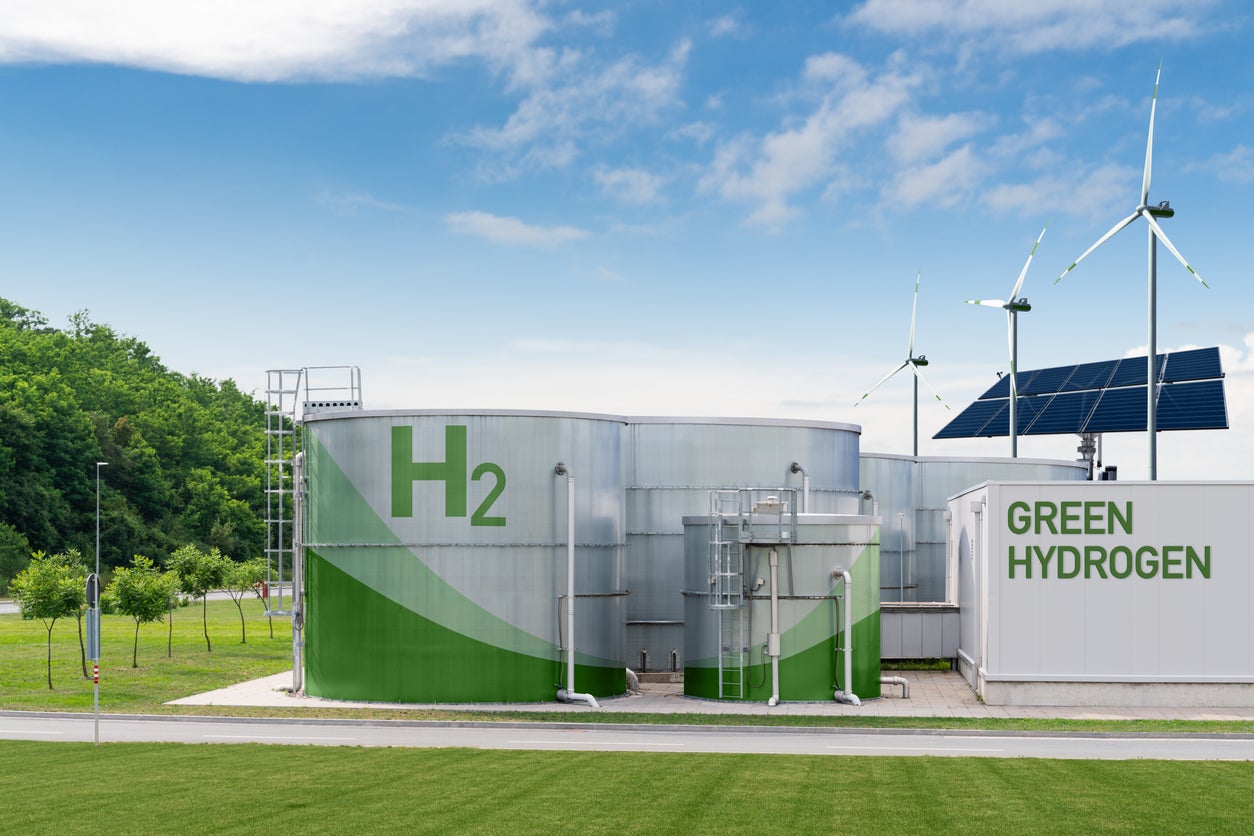India's energy sector is undergoing a significant transformation, driven by ambitious renewable energy targets, increasing domestic and multinational demand, and a focus on energy security. These developments present both opportunities and talent challenges for participants in the market.
To gain insights into the evolving energy policy environment and talent landscape in India, we spoke with Ashwani Dudeja, Group President and Director for Green Hydrogen and Ammonia at ACME Group, one of India's leading sustainable and renewable energy companies.
Dudeja brings 30 years of marketing and business development experience in the energy sector, having worked across Asia and Europe in various functional and leadership roles, including his post as the India Country Head at Shell Energy.
As Group President and Director for Green Hydrogen and Ammonia at ACME Group, Dudeja is at the forefront of India's push towards sustainable energy solutions. His expertise in this area is particularly relevant given the country's focus on developing a robust green hydrogen ecosystem as part of its National Hydrogen Mission, which aims to make India a global hub for the production and export of green hydrogen.
With comprehensive exposure to global energy markets and the energy transition, Dudeja's insights shed light on the country's efforts to achieve its renewable energy targets and secure its energy future.

HC Group: What are the key factors you see shaping India's energy markets at the moment?
Ashwani Dudeja: The Indian power sector's growth is being driven by a surge in energy demand, propelled by industrial expansion and increased electrification due to a growing population. Government support, for example the allocation of $885 million for the solar power sector and other recent policy initiatives have further boosted opportunities for local and global investors.
In renewables, solar and wind projects are expected to be cost-competitive by 2025-2030. Investments in renewables are also projected to increase significantly in 2024. In carbon markets, India's domestic Carbon Credit Trading Scheme (CCTS) is pivotal, with a compliance market launching in 2026.
There are challenges, which include continued dependence on imported coal. This can trigger operational disruptions when international prices soar. Renewables can also face challenges such as aging infrastructure and financial constraints. And there is still some regulatory uncertainty in the carbon market.
Nonetheless, taken together, these factors are combining to create a positive environment which is catalysing substantial investments. This, in turn, is creating demand for an estimated 3.78 million power professionals by 2032, which will be vital to deliver on the potential of this sector.
Companies in this sector need talented professionals adept at managing complex renewable energy projects.
The energy transition is reshaping power markets in APAC. Discover how HC Group’s Singapore Office can support talent requirements across the sector and region.
Connect with our specialist consultants: singapore@humancapital.global | +65 3158 7410
HC Group: What are the most exciting new trends and technologies shaping these talent markets?
AD: The focus on electric mobility, driven by the government's goal of a 45% reduction in GDP emissions intensity by 2030, is creating a favourable environment with incentives for EV use, subsidised charging tariffs, and more attractive demand models.
Recent uplifts in investments in hydropower and technologies including solar fuels and carbon recycling also offer exciting opportunities. India's National Policy on Biofuels is helping to create both an attractive investment landscape - and talent market - in that sector.
New service models, such as microgrids and energy as a service (EaaS) are enhancing local resilience, while the shift to distributed energy landscapes through EaaS is being driven by technologies like big data.

HC Group: What are the key skills and expertise most in demand across ACME Group and the wider Indian energy market?
AD: A wide range of skills are highly sought after in the transition to cleaner energy by businesses like ACME Group. Companies in this sector urgently need professionals with expertise in renewable energy technologies. This encompasses solar, wind, and hydro, along with project management proficiency. Understanding the energy policy and regulatory environment, coupled with compliance skills, is also crucial.
There is also significant demand in this sector for digital expertise, including data analytics and artificial intelligence, to enhance efficiency and decision-making. Experts in energy conservation, electric grid management, environmental sustainability, financial analysis, electrical engineering, and international business collaboration are all sought after.
Finally, continuous learning and adaptability are vital for energy professionals to stay competitive and contribute to the sector's growth and sustainability.
There is a pronounced shortage of professionals skilled in emerging technologies like artificial intelligence, blockchain, and IoT for energy applications.
HC Group: Are there any specific skill gaps or areas where talent is lacking at the moment?
AD: We are seeing talent gaps in areas including advanced technology adoption. In particular, there is a pronounced shortage of professionals skilled in emerging technologies like artificial intelligence, blockchain, and IoT for energy applications. Cybersecurity is a related area where good talent is scarce. In particular there is a shortage of specialists focused on securing the smart grid infrastructure of the future.
Companies in this sector also need more talented professionals with expertise in project management - adept at managing complex renewable energy projects. As a priority, the sector also requires more individuals with backgrounds in policy analysis. There is currently relatively limited expertise in navigating and influencing evolving energy policies.
HC Group: How is the Indian energy sector addressing these skill gaps?
AD: Steps are definitely being taken to address these issues. These include specialised training programs: more companies are initiating or partnering with training institutions to offer courses in renewable energy technologies, data analytics, and project management.
We are also seeing encouraging university partnerships where industry is collaborating with universities for curriculum development, as well as joint research programs to align academic offerings with energy industry needs.
There have also been positive developments with internship programmes for India’s energy sector. More companies are providing hands-on experience through internships to bridge the gap between academic learning and practical industry requirements. Businesses in our industry are also encouraging employees to engage in continuous learning and upskilling through workshops, webinars, and industry conferences to stay updated on the latest advancements.
HC Group is witnessing a surge in demand for India-based commercial talent, particularly in the fields of trading, business development, marketing and financing. This increased interest is driven by the growing appetite of multinational energy companies to capitalise on the burgeoning Indian market, as well as the ambitions of Indian players to expand their operations overseas.
This dynamic landscape presents a wealth of opportunities for companies looking to establish or strengthen their presence in the market, however, it also poses talent challenges, with skills shortages.
To navigate this complex environment successfully, organizations require experienced professionals with a deep understanding of the Indian energy market, strong commercial acumen, and the ability to forge strategic partnerships.
To gain further insights into the current talent landscape and explore how HC Group can assist you in building high-performing teams, please do not hesitate to contact Alexander Walsh in our Singapore office.

